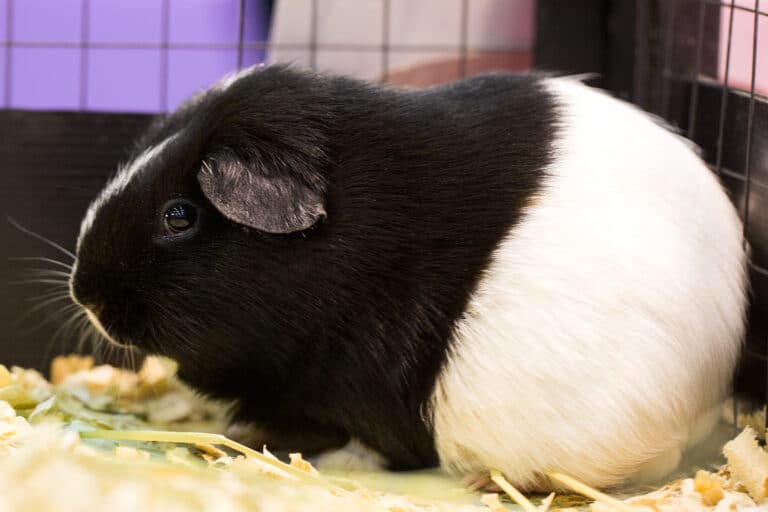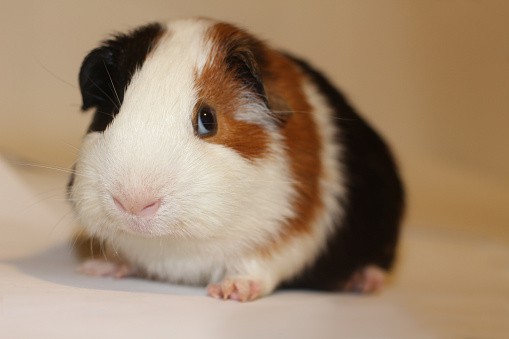The Science Behind Pregnancy Weight Gain in Guinea Pigs: How Much is Normal?
Pregnancy is an incredible journey for any species, and guinea pigs are no exception. Just like humans, these adorable little creatures experience changes in their bodies during pregnancy, including the often-debated subject of weight gain. But how much weight gain is considered normal? And what factors contribute to this increase in weight? In this article, we will delve into the science behind pregnancy weight gain in guinea pigs, exploring the various variables at play and shedding light on what can be considered a healthy amount of growth for these furry mothers-to-be. So sit back and prepare to discover fascinating insights into the biology of guinea pig pregnancies – you may just find yourself amazed by their remarkable reproductive journey!
Factors Affecting Pregnancy Weight Gain in Guinea Pigs
Pregnancy weight gain is a significant aspect of guinea pig reproduction and can vary depending on several factors. One crucial factor affecting weight gain in pregnant guinea pigs is the number of offspring being carried. Generally, a higher number of pups leads to increased maternal weight gain. Another factor influencing this gain is the timing within the gestational period; as pregnancy progresses, weight tends to increase. Additionally, diet plays a vital role in determining the amount of weight gained during pregnancy in guinea pigs. A well-balanced and nutritious diet before and during pregnancy promotes healthy growth while excessive or inadequate feeding may result in abnormal gains.
Understanding the factors that contribute to pregnancy weight gain in guinea pigs is essential for ensuring optimal health for these small mammals. By carefully monitoring their nutrition and considering variables such as litter size and gestational stage, owners can help maintain appropriate weights throughout pregnancy. Providing sufficient support during this time contributes to healthier outcomes for both mother and pups alike.”
The Role of Diet and Nutrition in Pregnancy Weight Gain
The role of diet and nutrition in pregnancy weight gain is crucial for the health of both the mother and her offspring. During pregnancy, guinea pigs require an increase in calories to support their growing bodies and supply nutrients to their developing babies. A balanced diet rich in essential nutrients such as protein, calcium, and vitamins is necessary for proper fetal growth. Adequate intake of these nutrients ensures healthy weight gain during pregnancy.
However, it is important to note that excessive weight gain can have negative consequences on the health of pregnant guinea pigs. Overweight or obese mothers face increased risks of complications during gestation and birth. Therefore, monitoring maternal weight through appropriate dietary management becomes essential. By providing a well-balanced diet tailored to meet the specific needs of pregnant guinea pigs, owners can help ensure a healthy amount of weight gain throughout this remarkable journey.
Hormonal Changes and Their Impact on Weight during Pregnancy
During pregnancy, hormonal changes in guinea pigs can have a significant impact on their weight. Progesterone, the primary hormone during pregnancy, increases fat storage to provide energy for the developing embryos. This can result in weight gain as the guinea pig’s body adjusts to support the growing litter. Additionally, estrogen levels rise during pregnancy, promoting water retention and increased blood volume which further contributes to weight gain.
The amount of weight a pregnant guinea pig gains can vary depending on factors such as genetics, diet, and overall health. On average, a healthy pregnant guinea pig may gain around 10-30% of her pre-pregnancy weight by full term. It is important for owners to monitor this increase closely to ensure it is within a reasonable range and not excessive or accompanied by other concerning symptoms.
Understanding the hormonal changes that occur during pregnancy in guinea pigs can help owners effectively care for their furry companions throughout this journey. By being aware of normal weight gain patterns and providing appropriate nutrition and healthcare, they can contribute to ensuring both mother and babies are healthy and thriving.
Monitoring and Managing Healthy Weight Gain in Pregnant Guinea Pigs
Monitoring and managing healthy weight gain in pregnant guinea pigs is crucial for their overall well-being. Just like with humans, the amount of weight gained during pregnancy can vary depending on several factors. It is important to understand the science behind this process in order to ensure a healthy amount of growth for these furry mothers-to-be.
The weight gain during pregnancy in guinea pigs is influenced by various variables such as the size and age of the mother, the number of pups she is carrying, and her overall health condition. Monitoring their weight regularly throughout gestation helps determine if they are gaining an appropriate amount, as excessive or insufficient weight gain can lead to complications. A balanced diet that includes fresh vegetables high in fiber and vitamin C along with timothy hay will contribute to healthy maternal weight gain.
Management of weight gain should also include providing ample space for exercise while still minimizing stress levels. Overweight pregnant guinea pigs may face difficulties during labor and have an increased risk of developing metabolic disorders. In contrast, inadequate weight gain may indicate malnutrition or pregnancy complications that require veterinary intervention.
By closely observing their nutritional needs, ensuring regular check-ups, and providing adequate living conditions, owners can help promote a safe and healthy environment contributing to proper weight management throughout pregnancy for guinea pigs.







